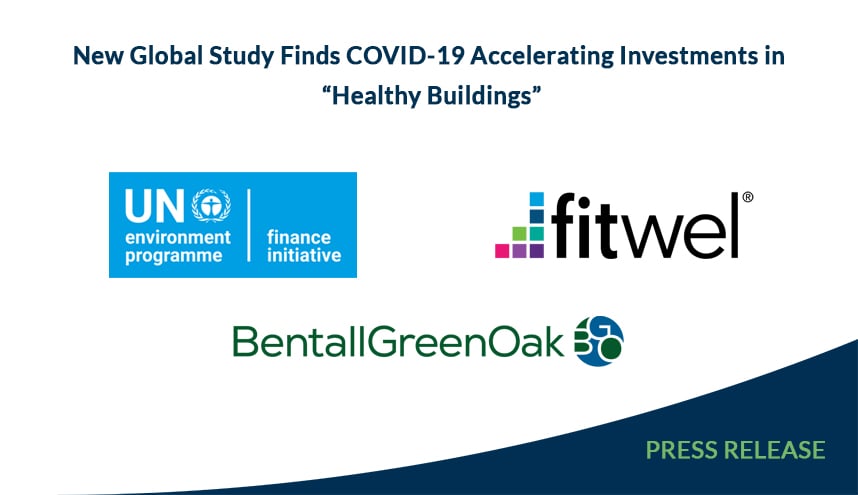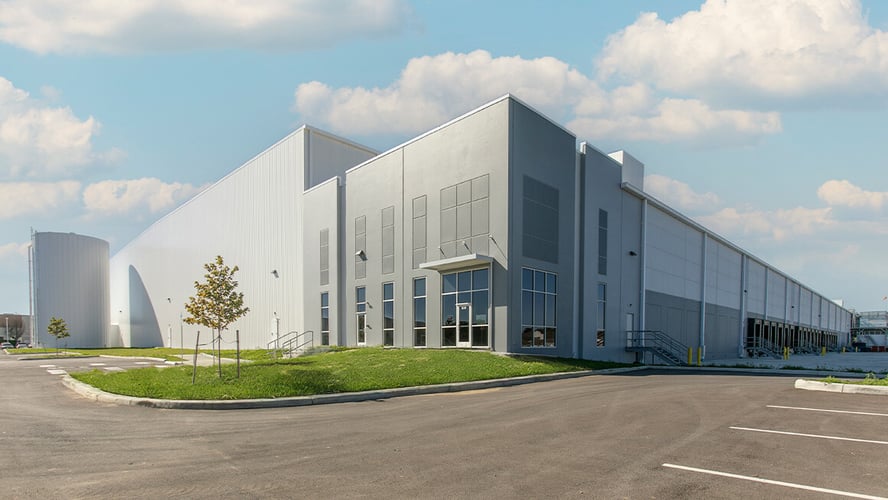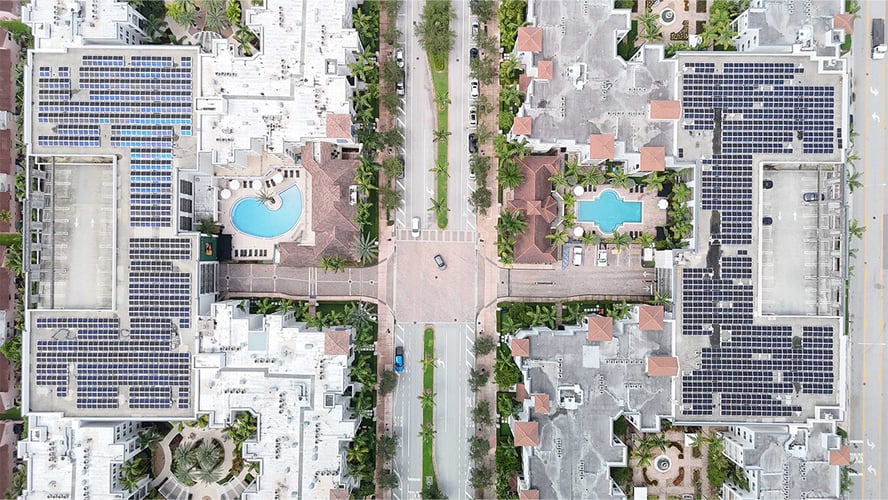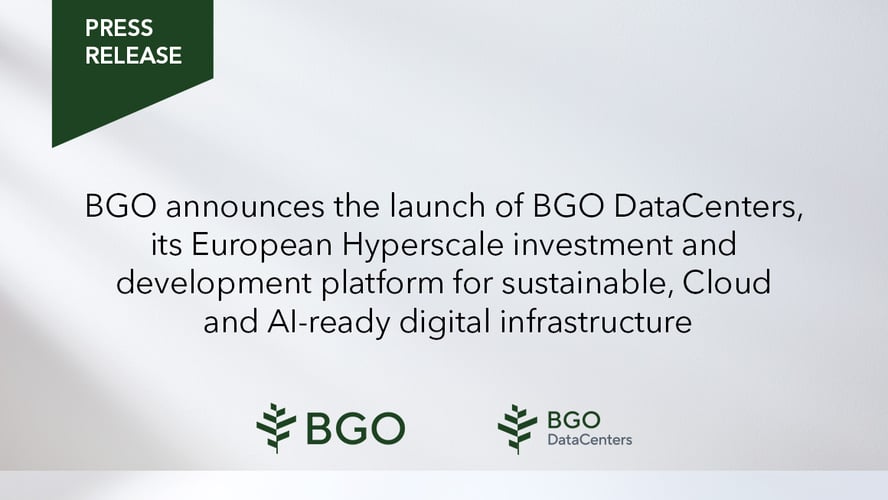New Global Study Finds COVID-19 Accelerating Investments in “Healthy Buildings”

Comprehensive survey solicited perspectives and insights from a group of institutions representing aggregate AUM of US$5.75T and real estate AUM of US$1.03T
92 percent of respondents expect demand to grow in the next three years, according to joint report from United Nations Environment Programme Finance Initiative, Center for Active Design, and BentallGreenOak
NEW YORK, March 31, 2021 — A new survey of many of the world’s leading real estate investors finds that 92 percent of respondents expect demand for healthy buildings to grow in the next three years, a compelling signal of the direction the real estate sector is heading. This finding, among others, is captured in a report titled “A New Investor Consensus: The Rising Demand for Healthy Buildings” – a comprehensive health and wellness study of global real estate investment managers and stakeholders representing aggregate AUM of $5.75 trillion and portfolio investments in real estate totaling approximately US$1.03 trillion – which can be downloaded here.
Coordinated by the United Nations Environment Programme Finance Initiative (UNEP FI), the Center for Active Design (CfAD), and BentallGreenOak (BGO), the study defines healthy buildings as those optimized for occupant health and safety through a mix of siting, design and operational strategies that measurably improve physical, social and mental health indicators.
The report reveals that COVID-19 has elevated the importance of health in investment decision-making, with 89.5 percent of respondents signaling their intent to enhance their wellness-related asset management strategies in the coming year. The need for healthy buildings has been steadily rising over the last decade, with nearly 70 percent of respondents indicating that they were seeing increased demand prior to the pandemic.
The report highlights an increasing investor awareness of the importance of health and well-being to their environmental, social and governance (ESG) strategies and the link between building design and function, and personal and societal health and wellness. This has given rise to a more concerted focus on the “S,” or social component of ESG, which has traditionally lagged behind the more well-defined environmental and governance pillars. Currently, only 53 percent of respondents report that they incorporate health and wellness into their ESG strategies to a great extent and 42 percent note that they have begun to do so, leaving significant room for growth.
“Responsible real estate investors have awakened to the notion that the buildings we manage for our clients are part of the critical infrastructure that cities will rely on for the resilience, health and well-being of their citizens,” said Amy Price, president of BGO. “Where excellence in environmental performance has rightly become a more common pursuit for our industry, our fiduciary responsibilities are increasingly taking us into new territory that requires attention to the multitude of social factors that impact asset value. Our collective experience with the first modern pandemic in our lifetimes is teaching us how closely tied investment performance is to operational excellence, tenant engagement and community relationships.”
Joanna Frank, president and CEO of CfAD and its Fitwel certification system, added, “This study quantifies for the first time the extent to which the industry is focusing on health and wellness in ESG investment strategies. We expected the findings to demonstrate strong demand for healthy buildings, especially given the pandemic, but it also points out the lack of consistency around measuring and reporting the impacts of these initiatives. There’s a clear case for standardizing benchmarks to track performance. Certifications like Fitwel can provide a framework, but we need to keep pushing for broad adoption so that we can track the measurable impacts.”
Eric Usher, Head of UNEP FI, stated, “We know from our members that there is broad consensus for finance actors to think holistically about the impacts they are creating through their capital allocation decisions, and that attention to societal goods is part of the value creation process for enterprises and real assets. This study confirms that health and wellness is now firmly part of that social agenda and must affect how real estate is designed and managed.”
AT-A-GLANCE: Key Findings from the study.
- A spike in demand for healthy buildings. Against the backdrop of COVID-19, 100 percent of respondents in Asia, 90 percent of respondents in North America and 85 percent of respondents in Europe expressed that current demand for healthy buildings is moderate or strong. Collectively, nearly 87 percent of respondents experienced increased demand over the past 12 to 24 months.
- Demand expected to keep growing. Ninety-two percent of respondents agree that demand for healthy buildings will grow in the next three years.
- Office and residential tenants driving demand. Ninety-five percent of respondents identify tenants as the leading stakeholder group driving demand, with most of that strong or moderate demand coming from the office (87 percent) and residential sectors (61 percent), followed by retail (48 percent). This reinforces the conclusion that the pandemic has brought health and wellness to the fore in spaces where people primarily live and work.
- Diverse drivers behind the investment strategies. While 89.5 percent of respondents plan to enhance their company’s health and wellness strategies in the coming year, the motivations for doing so are diverse – respondents cite COVID-19 response (100 percent), human health (86 percent), tenant satisfaction (71 percent), market differentiation (71 percent), enhancing reputation (57 percent) and compliance concerns (43 percent) as core reasons for investing in these strategies.
- A chance to align on best practices. Nearly three-fourths of respondents (74 percent) agree that tracking data is a key priority for implementing healthy buildings into their ESG strategies. The availability of healthy building certification systems – which 61 percent of respondents report using in some form – can offer a pathway for the industry to more consistently accomplish this by establishing clear benchmarking and reporting standards.
About BentallGreenOak
BentallGreenOak is a leading, global real estate investment management advisor and a globally-recognized provider of real estate services. BentallGreenOak serves the interests of more than 750 institutional clients with approximately $53 billion USD of assets under management (as of December 31, 2020) and expertise in the asset management of office, industrial, multi-residential, retail and hotel property across the globe. BentallGreenOak has offices in 24 cities across twelve countries with deep, local knowledge, experience, and extensive networks in the regions where we invest in and manage real estate assets on behalf of our clients. BentallGreenOak is a part of SLC Management, which is the institutional alternatives and traditional asset management business of Sun Life.
The assets under management shown above include real estate equity and mortgage investments managed by the BentallGreenOak group of companies and their affiliates.
For more information, please visit www.bentallgreenoak.com
About UNEPFI
United Nations Environment Programme Finance Initiative (UNEP FI) is a partnership between UNEP and the global financial sector to mobilize private sector finance for sustainable development. UNEP FI works with more than 350 members—banks, insurers, investors—and more than 100 supporting institutions to help create a financial sector that serves people and planet while delivering positive impacts. It aims to inspire, inform and enable financial institutions to improve people’s quality of life without compromising that of future generations. By leveraging the UN’s role, UNEP FI accelerates sustainable finance. The UNEP FI Property Working Group (PWG) is a collection of more than 30 institutional investors, asset managers, and commercial banks committed to enhancing property value by reducing the sector’s energy and resource consumption and greenhouse gas emissions, addressing occupant health and well-being, and improving the physical and social environments where its assets lie. For more information, visit unepfi.org/investment/property.
About the Center for Active Design and Fitwel
The Center for Active Design (CfAD) is a global non-profit organization using design to foster healthy and engaged communities. In 2017, the U.S. Centers for Disease Control and Prevention (CDC) and U.S. General Services Administration selected CfAD to serve as the exclusive licensed operator of Fitwel, a rigorous, third-party healthy building certification system that sets the industry standard for evidence-based strategies promoting positive health outcomes for occupants and communities. As of December 2020, nearly 2,000 Fitwel projects had been registered—up 190% from the year prior—representing more than 600 million square feet of real estate directly impacting 1.3 million people. The CDC remains Fitwel’s research and evaluation partner. To learn more about Fitwel, please visit fitwel.org.
Media Contact
ICR for the Center for Active Design and Fitwel
Fitwel@icrinc.com
203-682-8277
Rahim Ladha for BentallGreenOak
media@bentallgreenoak.com
Sally Wootton for United Nations Environment Programme Finance Initiative
Sally.Wootton@un.org


